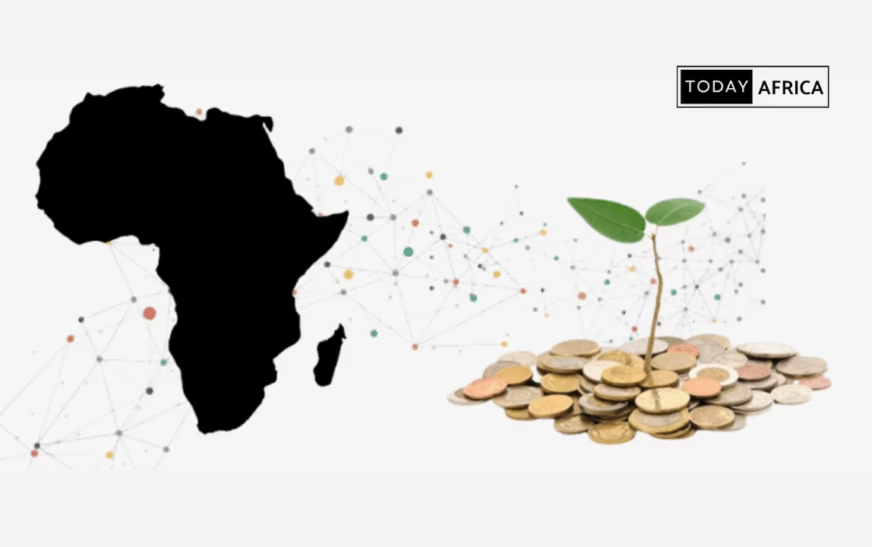The days of winning over investors with flashy user numbers and rapid growth alone are over. In 2021, that may have sealed the deal. In 2025, the conversation starts with fundamentals.
“Talk me through your unit economics,” an investor now asks as a baseline question.
Across Kenya, Nigeria, South Africa, and other markets, African startups are learning that sustainability is the new flex.
According to Briter Bridges’ 2024 African Startups Insight Report, over 55% of startups that raised early-stage funding between 2018 and 2021 struggled to secure follow-on investment due to unsustainable business models, weak market readiness, and lack of investor-aligned growth strategies.
The message is clear: today’s VCs are no longer investing based on hype. They’re backing founders who combine vision, solid metrics, and resilience.
In this article, we break down exactly what investors look for in African startups—from the human and strategic foundations to the hard performance metrics, and finally, to actionable tips that help founders stand out.
Human and Strategic Foundations VCs Look For
1. Strong founding team
One of the first things investors evaluate is the team behind the startup. Investors don’t just invest in ideas; they invest in people.
A strong founding team with diverse skills, industry experience, and a track record of execution gives investors confidence that the business will navigate challenges, scale effectively, and compete successfully in the market.
Investing often involves taking a chance on a startup, with investors believing in its potential and viability for investment.
Investors need to believe that the founders are capable of adapting, executing their vision and driving the company forward through both the highs and the inevitable lows.
2. Clear product-market fit
A clear product-market fit signals that your solution addresses a genuine demand, and investors pay close attention to that. In other words, they need proof that your product or service meets a real need for a specific audience.
Achieving product-market fit demonstrates that customers not only want your product but are willing to pay for it.
Product-market fit is one of the most crucial factors that investors look for. It validates the viability of your business idea and indicates that there’s room for growth in the market.
See Also: 8 African Startups that Raised Series A in H1 2025
3. Scalable business model
Investors expect startups to have a scalable business model. Scalability means that as your business grows, your revenue increases without a corresponding rise in operational costs.
In simple terms, investors are looking for companies that can grow rapidly and efficiently without needing significant capital to support that growth.
When evaluating a startup, investors look at how the business can expand into new markets, acquire more customers and increase sales without exhausting resources.
They want to see a clear roadmap for growth, with a focus on efficiency and cost-effectiveness.
4. Market opportunity
No matter how innovative your product may be, if the market is too small, investors are unlikely to show interest. Market opportunity should not be based on assumptions; it must stem from thorough research that identifies a genuine gap in the market.
Investors want to see evidence that there is a real need for your product, ideally backed by data.
Additionally, you should have engaged with the market you aim to serve, rather than simply discussing opportunities in an area you haven’t explored.
Highlighting your competitors is also crucial, as investors want to understand the landscape and how your startup positions itself within a large and growing market with significant demand.
5. Unique value proposition
In a competitive startup ecosystem, investors are looking for startups that offer something unique. What sets your startup apart from the rest?
Your unique value proposition (UVP) should clearly articulate why customers would choose your product over others in the market.
A strong UVP demonstrates that your business has an edge, whether it’s through innovation, good customer experience or a more efficient solution to a problem.
Investors need to see that your product isn’t just another option but the best option for your target audience.

6. Strong vision and mission
Investors often look beyond the immediate product or service. They want to know what motivates the founders and how committed they are to their long-term vision.
A compelling vision and mission demonstrate that you’re not just in it for the short term but that you’re driven by a larger purpose.
This level of commitment can be reassuring to investors, who want to feel confident that the founders will stick with the business through thick and thin.
7. Adaptability and resilience
The startup journey is rarely smooth, and investors know that better than anyone. They expect startups to face challenges, and what matters most is how the founding team responds to adversity.
Investors are more likely to back founders who have demonstrated resilience and adaptability. Being able to pivot, adjust strategies and respond to changes in the market is crucial for startup success.
Investors look for entrepreneurs who can weather the storm and bounce back from setbacks with new solutions.
Resilient entrepreneurs turn failures into learning opportunities, adapt to market changes and persist in the face of adversity.
Read Also: 8 Ways African Women Entrepreneurs Are Accessing Global Funding
Key Metrics VCs Use to Evaluate African Startups
In this blog, we explore some important metrics to consider before investing in African startups in 2024.
1. Total addressable market (TAM)
The TAM represents the overall revenue opportunity for a startup’s product or service. In the African context, it’s crucial to consider not only the current market size but also the potential for growth as infrastructure and technology adoption improve across the continent.
2. Monthly recurring revenue (MRR)
The predictable and stable income generated each month for subscription-based startups. For subscription-based startups, MRR is a critical metric that shows the predictable and stable income generated each month. A growing MRR indicates that the startup is successfully acquiring and retaining customers.
3. Customer acquisition cost (CAC)
CAC measures the total cost of acquiring a new customer, including marketing and sales expenses. In African markets, where consumer behavior and marketing channels may differ from other regions, understanding the efficiency of customer acquisition is crucial.
4. Lifetime value (LTV)
LTV estimates the total revenue a business can expect from a single customer account throughout their relationship. A high LTV to CAC ratio (ideally 3:1 or higher) suggests a sustainable business model.
5. Churn rate
This metric tracks the percentage of customers who stop using a product or service over a given period. In African markets, where customer loyalty can be influenced by unique cultural and economic factors, a low churn rate is particularly important.
6. Gross margin
Gross margin, calculated as (Revenue – Cost of Goods Sold) / Revenue, indicates the profitability of a startup’s core business model. For African startups, it’s important to consider how local factors such as supply chain challenges or currency fluctuations might impact this metric.
See Also: Grant vs Loan: How to Decide for Your Small Business in Africa
7. Burn rate
The burn rate shows how quickly a startup is spending its capital. In the African context, where follow-on funding can be more challenging to secure, a sustainable burn rate is crucial for long-term survival.
8. Runway
Closely related to burn rate, runway indicates how long a startup can continue operating before it runs out of cash. A longer runway gives African startups more time to achieve key milestones and secure additional funding.
See Also: Grant vs Loan: How to Decide for Your Small Business in Africa
9. User growth rate
This metric measures the speed at which a startup is acquiring new users. In Africa’s rapidly evolving markets, a strong user growth rate can indicate product-market fit and the potential for rapid scaling.
10. Active user ratio
The proportion of total users who are actively engaging with the product or service.
Beyond just user acquisition, it’s important to track how many users are actively engaging with the product or service. This metric can provide insights into user satisfaction and the startup’s ability to create lasting value.
11. Mobile adoption rate
The percentage of users who access a startup’s product or service via mobile devices. Given the prevalence of mobile technology in Africa, understanding how well a startup’s product or service performs on mobile devices is crucial. A high mobile adoption rate can indicate strong potential for widespread user acceptance.
12. Payment success rate
The percentage of attempted payments that are completed. For fintech startups or any business involving digital transactions, the payment success rate is a critical metric. In African markets, where payment infrastructure can vary widely, a high success rate demonstrates the startup’s ability to overcome local challenges.
13. Unit economics
The revenues and costs associated with a single unit of sale. Understanding the revenues and costs associated with a single unit of sale is crucial for assessing a startup’s potential for profitability at scale. In Africa, where market conditions can vary significantly between countries, strong unit economics are a positive indicator.
14. Regulatory compliance score
A measure of how well a startup adheres to relevant regulations. Given the complex and often changing regulatory landscape across African countries, a startup’s ability to navigate these challenges is crucial. A high compliance score indicates lower regulatory risk and better positioning for long-term success.

15. Social impact metrics
Measures of a startup’s positive impact on society or the environment. While not always directly tied to financial performance, social impact metrics are increasingly important for startups operating in African markets. These could include measures of job creation, financial inclusion, or environmental sustainability, depending on the startup’s focus.
Read Also: 16 Crowdfunding Platforms Africans Can Use For Business, Education, & Emergencies
Tips for Startups in Africa’s Competitive Environment
Now that we’ve seen what investors are looking for and the key metrics that drive investment decisions. Let’s explore how founders can strategically position their startups to not only raise funding but also sustain growth in Africa’s competitive environment:
- Prioritize profitability early: Investors are shifting focus from growth-at-all-costs to sustainable, revenue-driven models. Nigerian fintechs like Moniepoint and Kenyan healthtechs like Ilara Health are thriving by optimising costs while expanding.
- Leverage local & global capital: African startups are diversifying funding sources, combining local angel networks, VC syndicates, and international capital. Platforms like NaiBAN and ViBAN (Kenya), LoftyInc Capital and CcHUB Syndicate (Nigeria) are backing high-potential ventures with a strong path to profitability.
- Strengthen investor readiness: In 2024, over 60% of rejected African startup pitches lacked robust financial projections or clear go-to-market strategies. Ensure your data room is investor-ready, with traction metrics, regulatory compliance, and growth forecasts well-documented.
- Build strategic partnerships: Startups collaborating with corporations, other startups, and telcos have gained significant traction.
- Expand smart, not fast: Instead of rushing into multiple markets, focus on deepening market penetration before scaling. Companies like Wasoko (B2B e-commerce) and Flutterwave (fintech) have succeeded by refining operations locally before expanding regionally.
- Fundraise strategically: Startups that are raising in the current environment should consider having investor conversations before they need the capital — assuming factor 1 is working well. Solve real problems, creating tangible value for target users. Have data-driven decision-making and communicate actively through their social media handles, such as LinkedIn, on what they are doing and the material milestones they are achieving
In today’s African startup ecosystem, growth without sustainability is no longer enough. Investors are backing founders who blend data with vision, metrics with mission, and speed with strategy. Founders who build with intention, clarity, and resilience will be the ones who raise capital and create lasting impact.
Leave a comment and follow us on social media for more tips:
- Facebook: Today Africa
- Instagram: Today Africa
- Twitter: Today Africa
- LinkedIn: Today Africa
- YouTube: Today Africa Studio
















